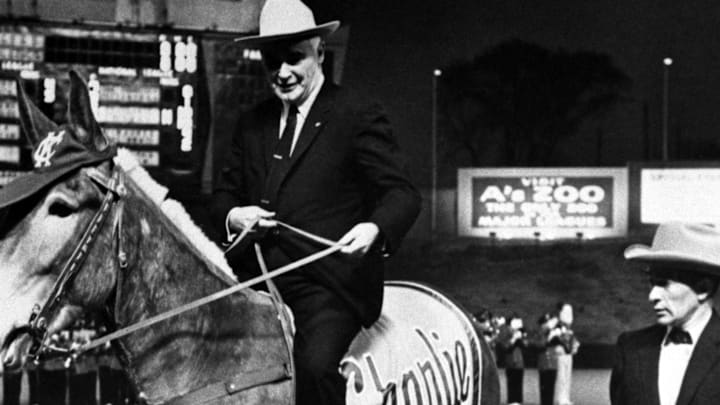Back in the fall of 1967, baseball fans across America were witness to a historic shift in the world of sports as the American League owners granted permission to Charlie Finley, the owner of the Kansas City Athletics (A's), to move the team to the vibrant city of Oakland, California. This monumental decision marked the beginning of a new era in baseball, and the eventual birth of the KC Royals.
Would the KC Royals exist without Charlie Finley moving the team?
The seeds of this move were sown through a series of promises and threats. Initially, Kansas City was promised a new baseball team by 1971 when the Athletics' departure was confirmed. However, Senator Stuart Symington and Kansas City Mayor Ilus Davis were determined to prevent this relocation. Their threats of legal action and opposition prompted American League President Joe Cronin to reopen negotiations.
The expansion deadline, originally set for 1971, was hastily moved forward to 1969. In a twist of fate, new franchises were awarded not only to Kansas City but also to Seattle. Unfortunately, Seattle's Pilots, an ill-fated choice given their under-financed ownership, faced numerous challenges and eventually relocated to Milwaukee after just one season.
Charlie Finley's tenure as the Athletics' owner was marked by controversy and constant flirtations with other cities. He even resorted to publicity stunts, such as a lease-burning incident, which turned out to be nothing more than a clever ruse. Finley's intentions to move the A's were evident as he explored potential destinations, including Dallas-Fort Worth, Louisville, and even a fictional "cow pasture" in Peculiar, Missouri.
Despite Finley's efforts, Kansas City managed to hold onto the team through a four-year lease agreement with Municipal Stadium in 1964. However, Finley's desire to relocate persisted.
The pivotal moment arrived during the 1967 World Series when Finley officially announced Oakland as the A's new home. A week later, on October 18, the American League owners granted him the permission he sought to move the Athletics to Oakland for the 1968 season.
This relocation stirred up a considerable amount of controversy, particularly because it went against the wishes of Jackson County, Missouri voters, who had approved the construction of a new baseball stadium (later named Royals Stadium) to be completed by 1973. Stuart Symington, a prominent Missouri legislator, publicly expressed his disapproval of the move, likening Oakland's fortune to "the luckiest city since Hiroshima." These criticisms added to the mounting pressure on the team owners.
As a result of this upheaval, an expansion team was granted to Kansas City, christened the Royals. Originally scheduled to make their debut in 1971, the Royals' entry into the league was expedited to 1969, a decision made in response to Symington's persistent advocacy.
During their time in Kansas City, the Athletics enjoyed an average attendance of just under one million spectators per season, despite the team's on-field struggles. In contrast, under Finley's ownership, attendance figures took a noticeable dip, primarily attributed to his unorthodox marketing strategies.
As the A's embarked on their journey to Oakland, they left behind a legacy of controversy, promises, and a city determined to bounce back with the birth of the Royals. The relocation marked a pivotal moment in the history of baseball, forever changing the landscape of the sport and the cities involved.
